If you’re a C++ programmer, you know that finding the right IDE is important. The wrong choice can lead to hours of wasted time and frustration.
Not all c++ IDEs are created equal. In fact, many of them are downright terrible.
We’ve done the hard work for you and compiled a list of the 11 best C++ IDEs.
What Is The Best C++ Integrated Development Environment?
There are many different C++ IDEs (Integrated Development Environments) available, each with its own advantages and disadvantages. Some of the most popular ones include Microsoft Visual Studio, Eclipse, and Code::Blocks.
If you’re looking for the best C++ IDEs, look no further. These 11 options will help you increase performance and productivity while supporting your cross-platform development needs.
Visual Studio Professional
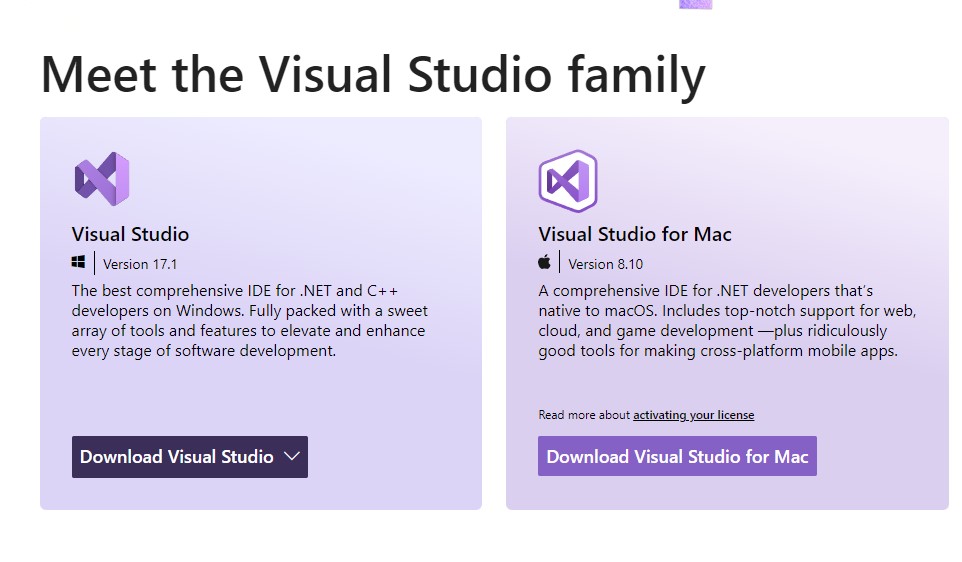
Overview
Create faster, richer apps with Visual Studio Professional. Developers need a C++ ide that comes packed with everything they need to succeed – and this C++ ide is designed just for them. With Windows 10 SDKs, tons of performance improvements, and enhanced C++ programming experiences among other new features, this C++ IDE has it all! It’s perfect for C++ development and C++ programming of any kind, though in most cases, Visual Studio Community will suffice.
Highlights
- Fully functioning IDE
- Quality of life features code change tracking, test suite integration, code analysis, code refactoring, syntax highlighting, code completion
- Enables mobile app development with support to develop native apps for Android, iOS, and Windows
- Cross-platform support for mobile, cloud, and gaming
- The subscription plan includes Azure credits, technical training, professional support, additional MS products.
- Integration with Azure DevOps
- Advanced debugging and profiling
- Available for Windows and Linux
Cons
- Not available for macOS
- Pricey
- Resource intensive, if you have older hardware, using this will only lead to frustration.
Pricing
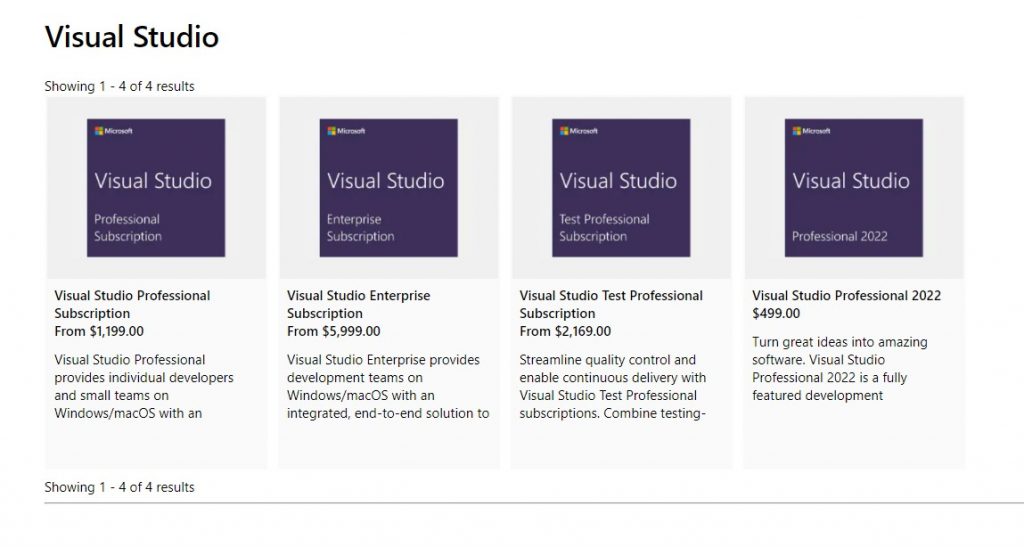
Visual Studio Professional is available in multiple editions. The Community Edition is free, while other editions have different pricing models.
Bottom Line
You’re a dedicated developer that switches languages frequently, desires to use one tool for all of your programming tasks, and wants more power and features that Visual Studio Professional can offer.
CLion
{screenshot of the home page or carousel of product images}
Overview
JetBrains is a well-known IDE developer, and CLion is its C/C++ IDE. CLion is a popular choice among expert coders working in C++, especially for larger, more complicated tasks. It is a proprietary IDE, however, which implies that a license must be purchased.
Highlights
- Cross-platform (works on Windows, macOS, Linux)
- Supports CMake
- Keyboard shortcuts
- Quality of life: smart code completion, code refactoring, static code analysis, integration with source code management systems
- Embedded terminal
- Plugins allow you to add features or find additional features provided by the community
- Very similar IDE and shortcuts for the rest of the JebBrains suite of IDEs, so if you know multiple programming languages you have familiarity with the other IDEs in the lineup
- Comprehensive user interface
- Great support
Cons
- Resource intensive
- Costs money
- Proprietary software
Pricing
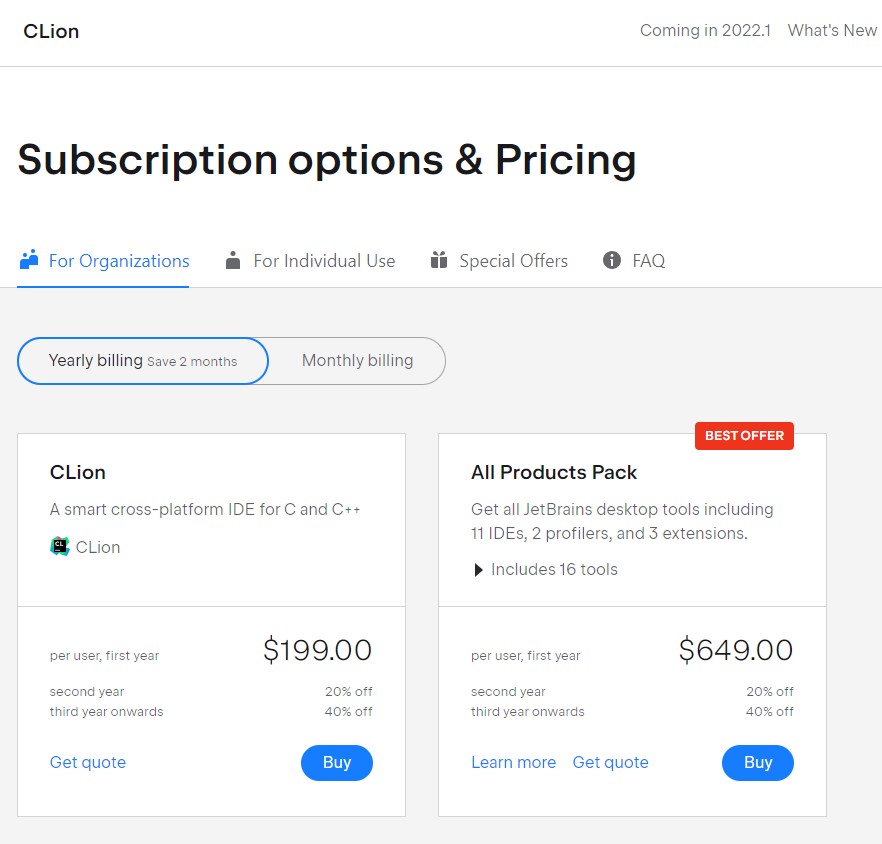
CLion costs around $200 per user license. CLion also comes as part of the JetBrains All Products pack.
Students and open-source projects qualify for free licensing.
Bottom Line
You’re a skilled developer with new hardware and a preference for higher-level languages, but you don’t mind paying for a complete C++ IDE that can handle sophisticated workflows. Or you are a developer who requires a cross-platform IDE.
If you are a student or maintainer of an open-source project, you can qualify for a free license.
Dev-C++
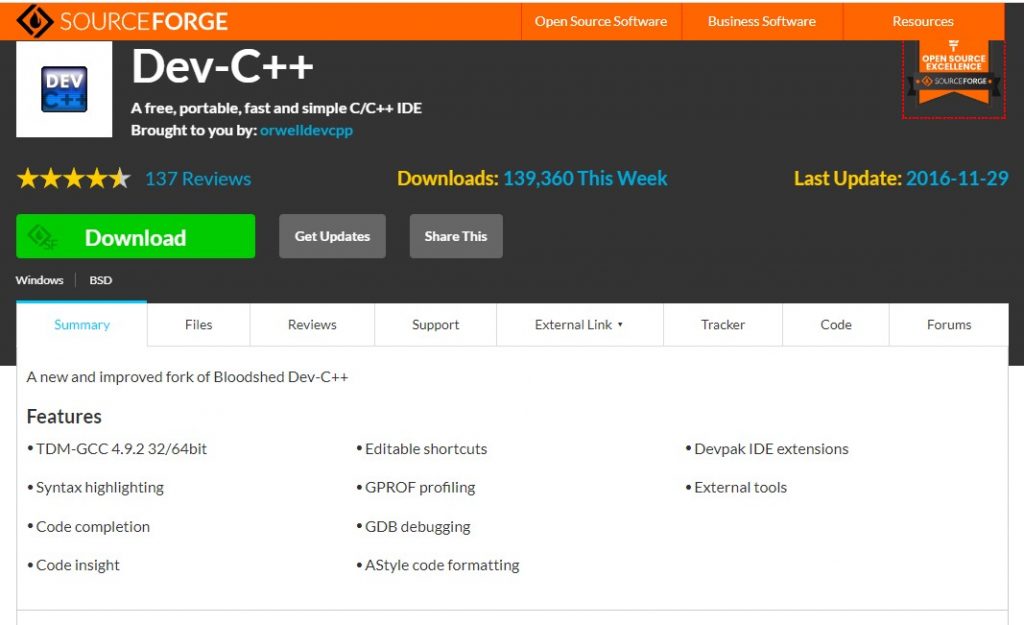
Overview
Dev-C++ is a full-featured, free integrated development environment and it is also free. Dev-C++ is a veteran beginning C++ IDE created in Delphi. It’s a fantastic alternative for executing code quickly, but it lacks powerful features that would aid large-scale coding. It doesn’t have as many features as the other IDEs but is still a solid beginner’s choice.
Highlights
- Free and Open Source
- Simple for beginners to understand and setup
- Designed from the ground up for C++, thus has a C++ focus throughout.
- Windows support
Cons
- Lacks features found in some of the other IDEs
- Not available for macOS or Linux
- Sometimes buggy, new releases are far between
Pricing
Dev-C++ is a free programming environment that is built from the ground up for C++ development.
Bottom Line
Dev-C++ is for a new C++ developer on Windows who wants to work with a simple and straightforward IDE.
Eclipse
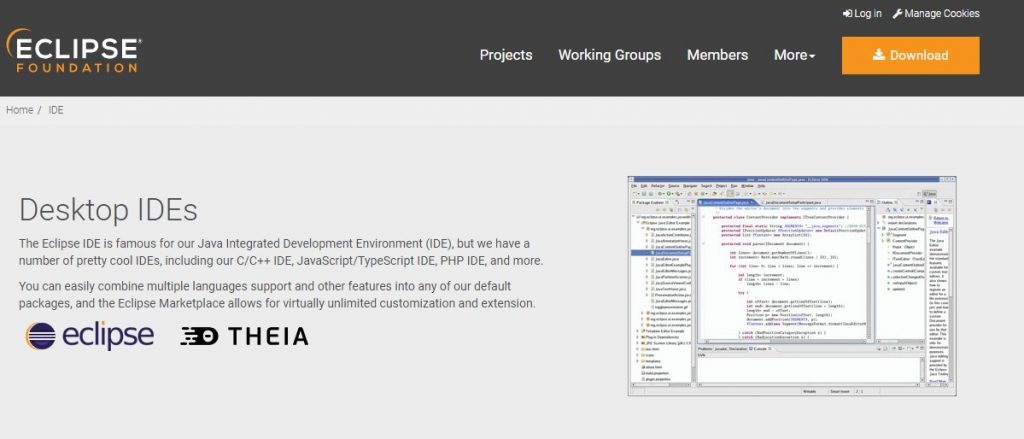
Overview
The Eclipse C & C++ IDE is a good choice for developing in C or C++, despite its most famous product being the open-source Java IDE. Because Eclipse is free, open-source, and supports multilanguage development, it’s a great alternative for developers working in many languages.
Not only does Eclipse provide a wealth of plugins, but it also has a wide range of configurations with additional capabilities, including code compilations and debugging. This flexibility makes Eclipse an excellent IDE for C++ programmers in addition to multi-language programmers looking to personalize their environment.
Highlights
- Free and open-source code editor
- Built-in code completion
- Huge community
- Cross-platform (Window, macOS, Linux)
- Large plugin libraries provide a wide range of additional features
- Can be used to program in other languages
Cons
- Resource hog
- Written in and for Java, so needs some tweaking to program in C++
- Doesn’t compile immediately. You must establish a compiler on your own (MinGW).
Pricing
Eclipse is a free and open-source IDE.
Bottom Line
If you’re a multilingual developer seeking an IDE with a large plugin ecosystem and don’t mind putting in the effort to personalize your experience, look no further.
Eclipse is always free, though it may take a little more work to get it to work with C++.
Code::Blocks
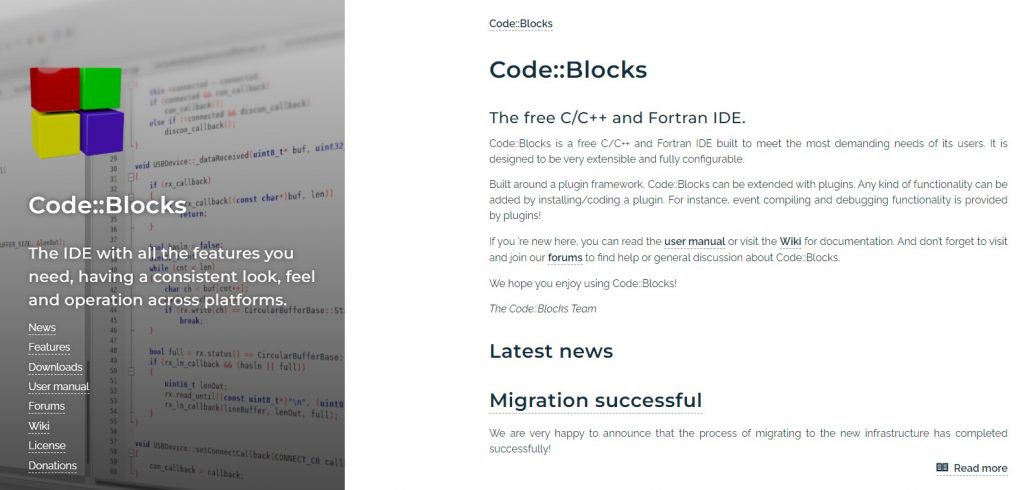
Overview
Another free IDE, Code::Blocks is an open-source, cross-platform C/C++ IDE for developers that has all of the features you’d want from an advanced development environment. Code completion, compilation, and debugging are all features included in Code:: Blocks. Additional capabilities may be enabled through configurable plugins such as code coverage analysis, profiling, drag-and-drop but these capabilities are simplistic compared to more powerful IDEs out there.
Highlights
- Free
- Simple and easy to use for those starting out
- Written specifically for C++
- Installation and getting started is easy
- Large Assortment of Plugins
- Runs on older computers and laptops
Cons
- The newer releases lag behind in for macOS developers
- Not the shiniest interface
- Only supports Fortran and C/C++
- Setting up the compiler is a challenge
Pricing
Code::Blocks is a free and open-source software development environment that uses the GNU Compiler Collection.
Bottom Line
Code::Blocks is a good C++ development environment for both beginners and seasoned coders, although it was designed especially for C++ and is convenient for novices looking to get started with the language out of the box. In some aspects, it is rather basic and antiquated.
Visual Studio Community
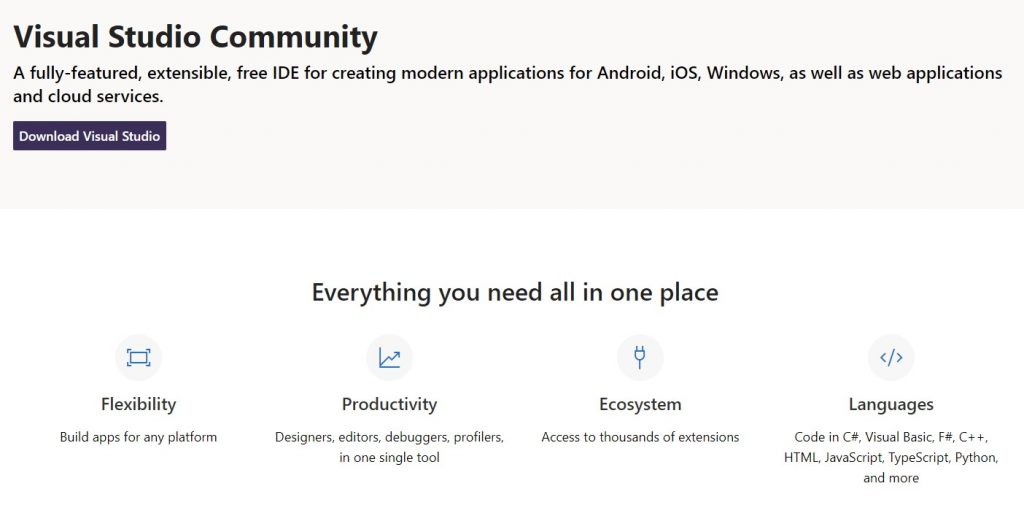
Overview
VS Community is an open-source, cross-platform code editor developed by Microsoft.
VS Community is a popular code editor that continues to be used by many developers across numerous languages, particularly Windows users.
VS Community is resource-conscious enough to run capably on older computers, yet it includes a full set of capabilities, including task execution, debugging, syntax highlighting, version control, and code navigation. However, Visual Studio Developer is a better choice if you’re looking for more complex processes.
Overall, VS Community’s versatility and mobility with its extensive set of features make it one of the most efficient and portable code editors for programming in C++ and more —and perhaps the finest free code editor available.
Highlights
- Multi-language support
- Built-in auto code completion
- Large ecosystem of plugins and extensions
- Works with older hardware
- Free version
- Produces portable code
- Version Control with Git
- Supported on Windows
Cons
- There is a learning and setup curve
- It may be too simplistic for complex use cases
- No official package signing
- To develop Azure, .Net, or UWP applications, you’ll need to have Visual Studio 2019.
Pricing
Visual Studio Community is a free and open-source IDE.
Bottom Line
Visual Studio Community is for those looking for a free and open-source C++ editor on the Windows platform.
CodeLite
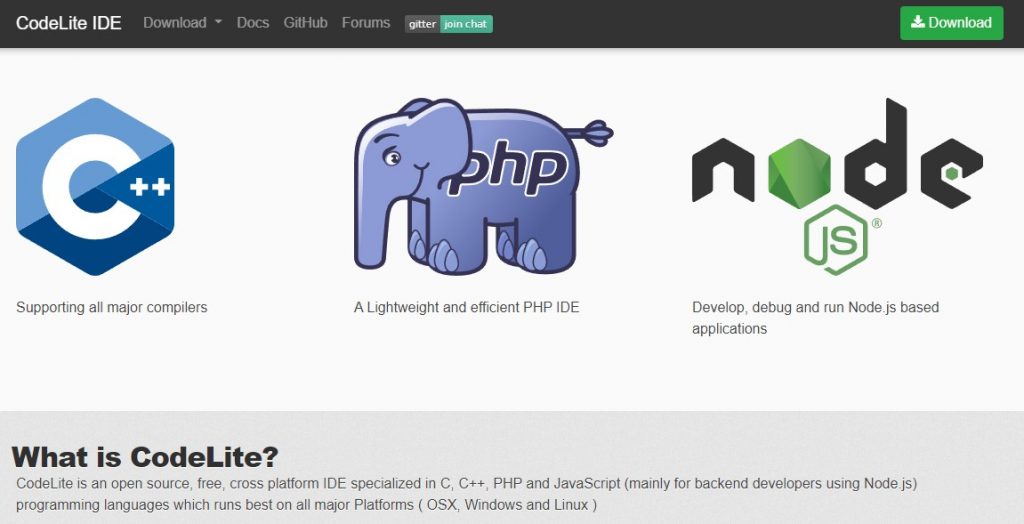
Overview
CodeLite is a C++ IDE (though it also supports JavaScript and PHP development) that is free and open-source. CodeLite grew out of an SQLite auto-complete project, but it evolved into a cross-platform C++ integrated development environment.
CodeLite is a great tool for testing and debugging in C++ since it is simple to use and lightweight. CodeLite utilizes the wxWidgets toolkit, like CodeBlocks. You can use free tools like GNU GDB and MinGW debugger to debug and compile your programs.
Highlights
- Open source and free
- Short installation and learning curve
- Great performance
Cons
- Not as powerful and capable as other IDEs
- No other language support
Pricing
CodeLite is a free and open-source IDE.
Bottom Line
CodeLite is for a programmer who wants to get up and running quickly and efficiently in C++ and nothing else.
NetBeans

Overview
Another cross-platform, free IDE with a good mix of configuration options and additional plugins is NetBeans. NetBeans started out as a go-to Java IDE, but it also supports many additional languages including HTML, CSS, PHP, and of course C/C++. NetBeans has many quality of life capabilities with code refactoring, source navigation, auto code completion, symbol and source navigation, and debugging.
Highlights
- Free and open source
- Lively and supportive long-lived community
- Nice quality of life features such as code refactoring, source navigation and auto code completion
Cons
- Developed originally for Java
- Setup is a struggle for C/C++
- The user interface is outdated
Pricing
NetBeans is free and open source.
Bottom Line
NetBeans is best for a Java programmer who is familiar with NetBeans already and needs to do some C++ coding in an environment with the same look and feel.
XCode
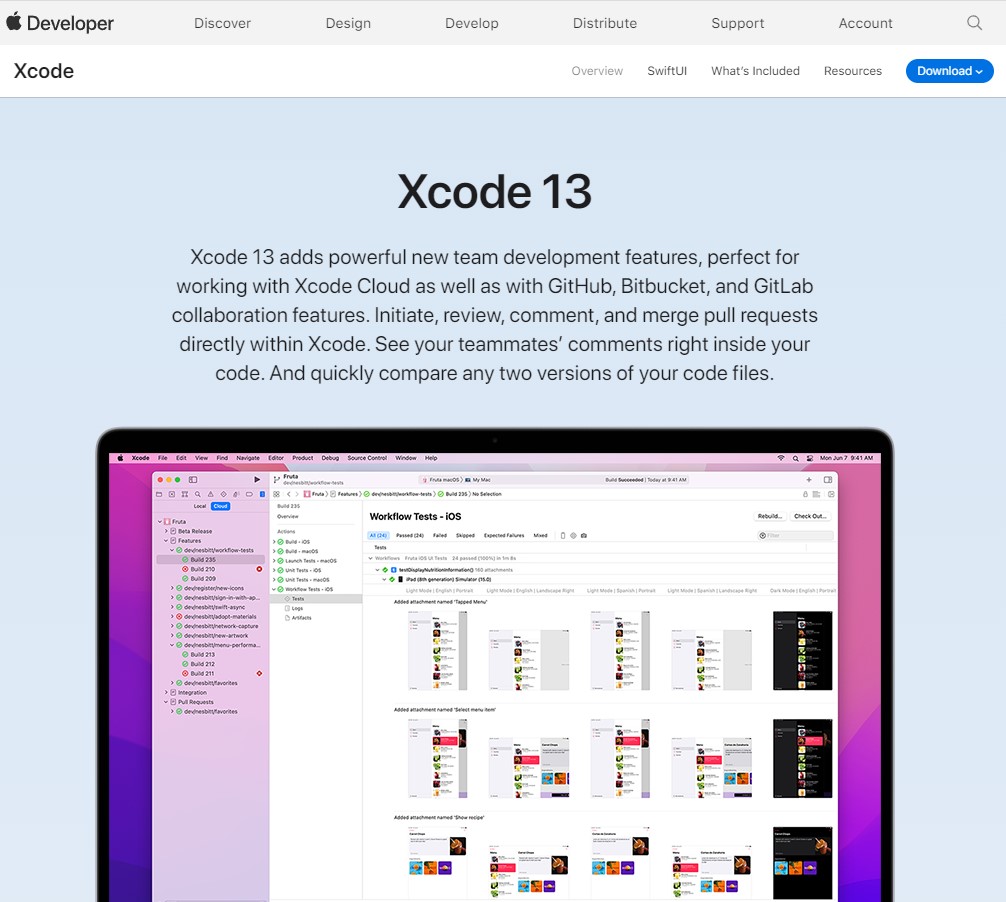
Overview
Apple’s XCode is a free IDE for Mac. Xcode supports C/C++ as well as a variety of additional languages, including Swift, Java, Objective-C, Python, Objective-C++, and Ruby.
For Mac OS users, XCode is an excellent choice since it’s the only officially sanctioned and supported IDE for iOS, macOS, and future versions (XCode also supports certificates and package signing).
{video embed}
Highlights
- Free
- Works on macOS
- Supports all languages in the Apple ecosystem
Cons
- macOS only
- No cross-development capability
Pricing
XCode is free.
Bottom Line
XCode is for developers working in macOS and want to develop for macOS or iOS.
What Are C++ IDEs?
A C++ IDE is an integrated development environment that provides a number of features to help you develop software. These include code completion, syntax highlighting, code navigation, and more.
There are a number of different C++ IDEs available, each with its own set of features. So, what should you look for when choosing a C++ IDE?
What to Consider when Choosing a C++ IDE?
When choosing a C++ IDE, the first thing you need to consider is what platforms it supports. Most IDEs support Windows, Mac, and Linux, but some only support one or two of those platforms.
The second thing you need to consider is the programming language features that the IDE supports. C++ has many features that are not found in other languages, so make sure the IDE you choose supports all the features of C++ that you plan to use.
Third, you should consider the development environment. How easy is it to create a project? How easy is it to add files to the project? Can you easily navigate through the files in the project? How easy is it to find and fix errors?
Fourth, you should consider the support of libraries. Does the IDE come with a library of components that you can use in your projects? Does the IDE support any of the popular C++ libraries, such as Boost or Qt?
Fifth, you should consider the support for debugging. How easy is it to set a breakpoint and step through the code? Is there a debugger console that allows you to see the values of variables as your program runs?
Sixth, you should consider the support for collaboration. Does the IDE allow multiple people to work on the same project at the same time? Does it keep track of who made which changes and when?
Seventh, you should consider the user interface. Is the user interface easy to understand and use? Is it customizable so that you can have the layout and features that you want?
Eighth, you should consider the cost. Some IDEs are free, while others have a price tag.
Ninth, you should consider the community. How active is the community? Are there lots of questions and answers on the forums? Is there a lot of user-generated content, such as video tutorials and blog posts?
Once you have considered all these factors, you should be able to find the IDE that is best for you.
Wrapping Up
Choosing the best IDE for C++ programming can be a daunting task. With so many different options available, it’s hard to know which one will work best for your specific needs. In this article, we’ve outlined the nine best C++ IDEs and provided a brief description of each one. We hope this information will help you make an informed decision about which IDE is right for you.
The best C++ IDE for Windows development is Visual Studio Professional.
The best C++ IDE for cross-platform development is CLion.
The best C++ IDE for those dedicated to the Apple ecosystem is XCode.
